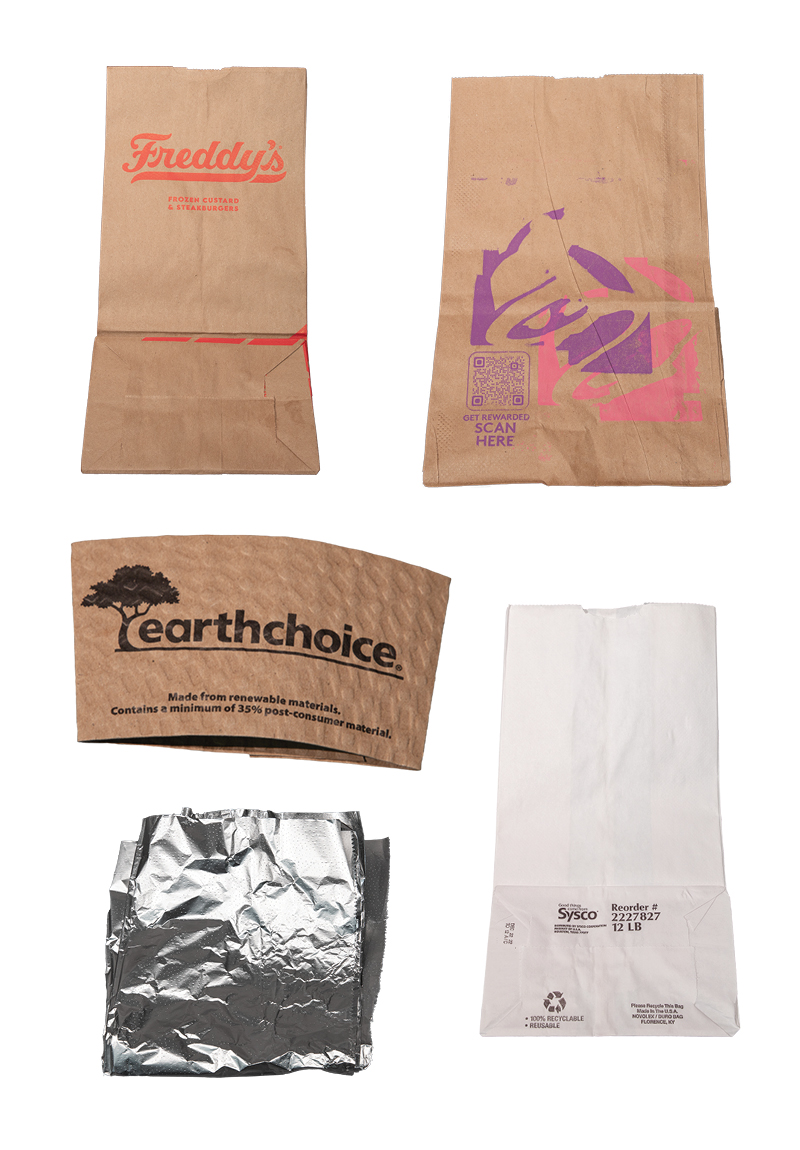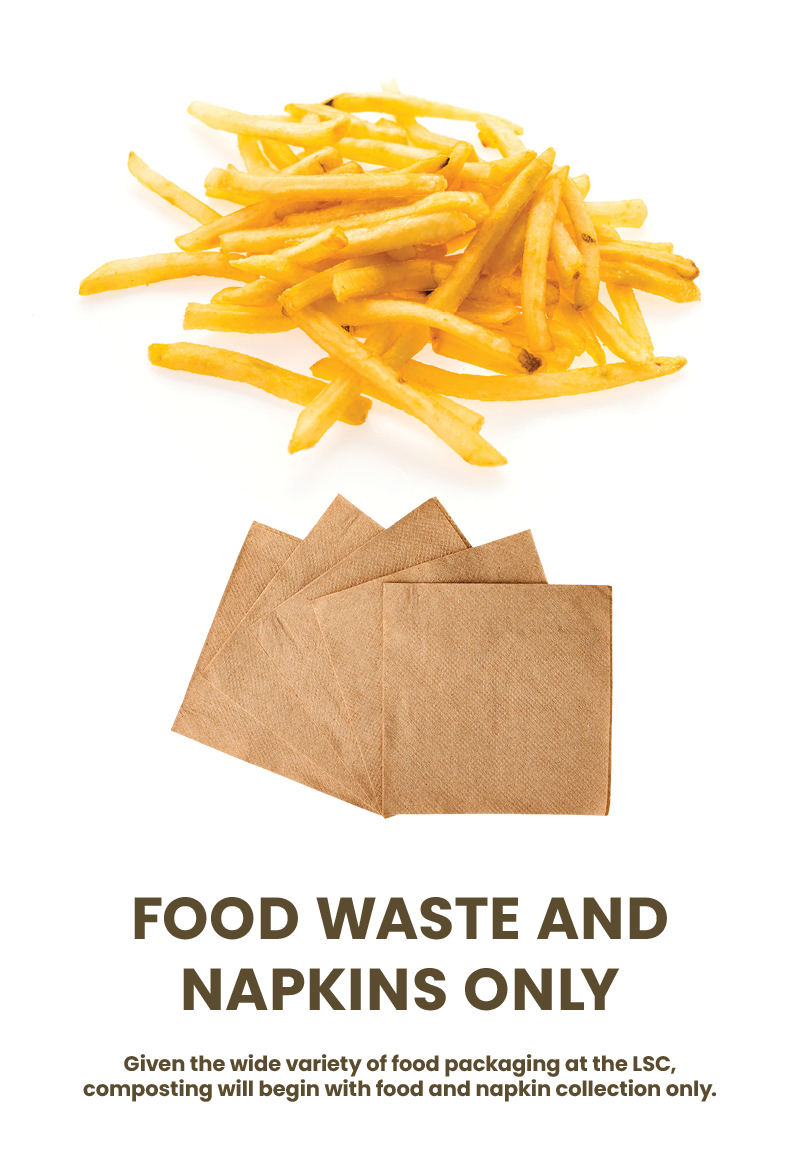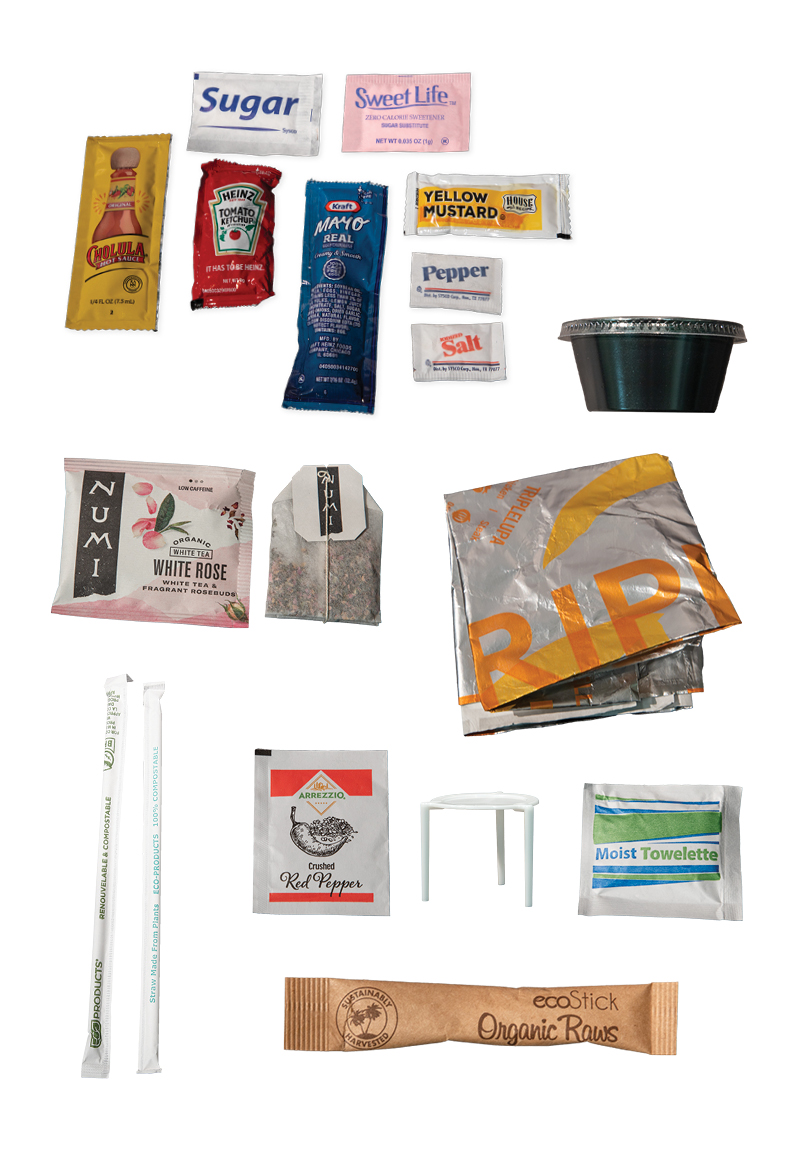
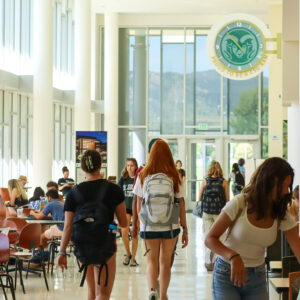
Composting is one of the easiest ways to reduce the waste stream on campus.
You can make a big difference in eliminating landfill waste and protecting the planet. However, contamination can spoil the entire bin. If you’re uncertain about which bin to use, the safest option is to choose the landfill bin. See below for more detailed information and examples of how to dispose of common items found in the LSC.
If in doubt, throw it out!
Check back soon for more specific information on sorting waste at the LSC
Composting Comes to
Food Court
The LSC now offers composting bins alongside recycling and landfill bills in the Food Court, thanks to the combined efforts of the Associated Students of Colorado State University (ASCSU) and LSC Operations.
The bins have been placed in the Food Court and will be staffed from 11 a.m. to 2 p.m. and 5 to 7 p.m. weekdays by students trained to answer questions about how to use the bins to avoid contamination and unnecessary waste.
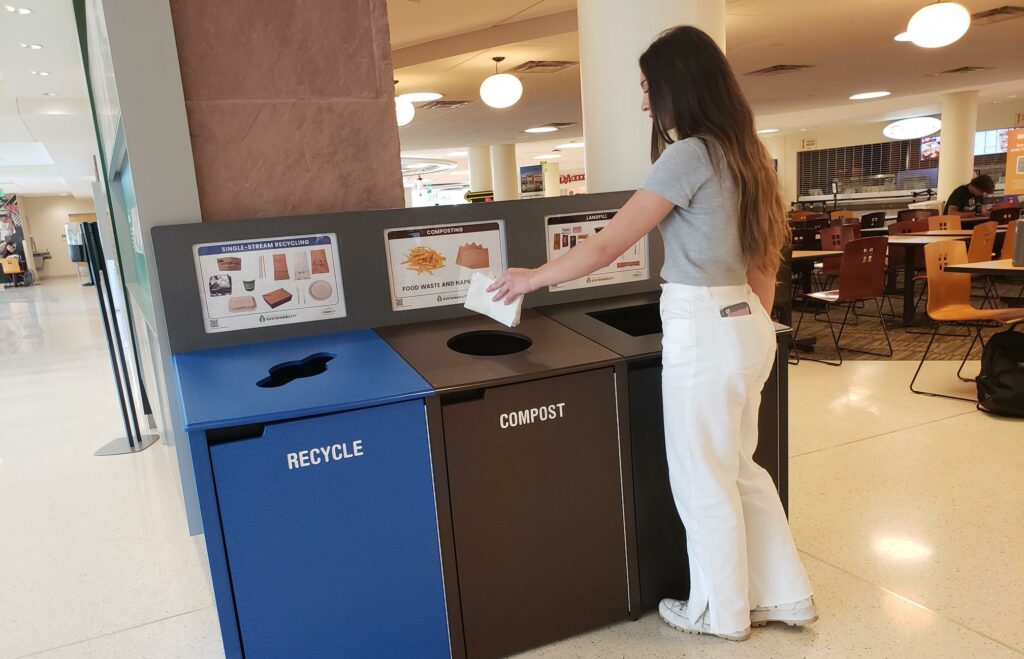
The bins match the colors used in the residential dining facilities with brown for composting, black for landfill, and blue for recycling. Given the wide variety of food packaging at the LSC, composting will begin with food and napkin collection only. See the guides above each bin for specific items. When in doubt, place items in the landfill bin to avoid contamination.
The addition of the composting bins will enhance the sustainability efforts already underway at the LSC. The LSC also composts items back-of-the-house.
A feasibility study supporting the placement of the bins was undertaken over the past few years by ASCSU students. The ASCSU’s Student Fee Review Board approved this effort in April of 2023, and costs are entirely funded by student fees.
Post-consumer food waste from the LSC and CSU dining centers is composted at the Windrows, a CSU Foothills Campus composting facility managed by CSU Facilities Management. A second composting facility called the Earth Flow, or “Oscar,” composts pre-consumer food waste from CSU dining centers. This composting center, facilitated by Housing & Dining Services at CSU’s Foothills Campus, reroutes more than 300,000 pounds of food waste from the landfill each year.
Aspen Grille is a 3 Star Certified Green Restaurant by The Green Restaurant Association (GRA).
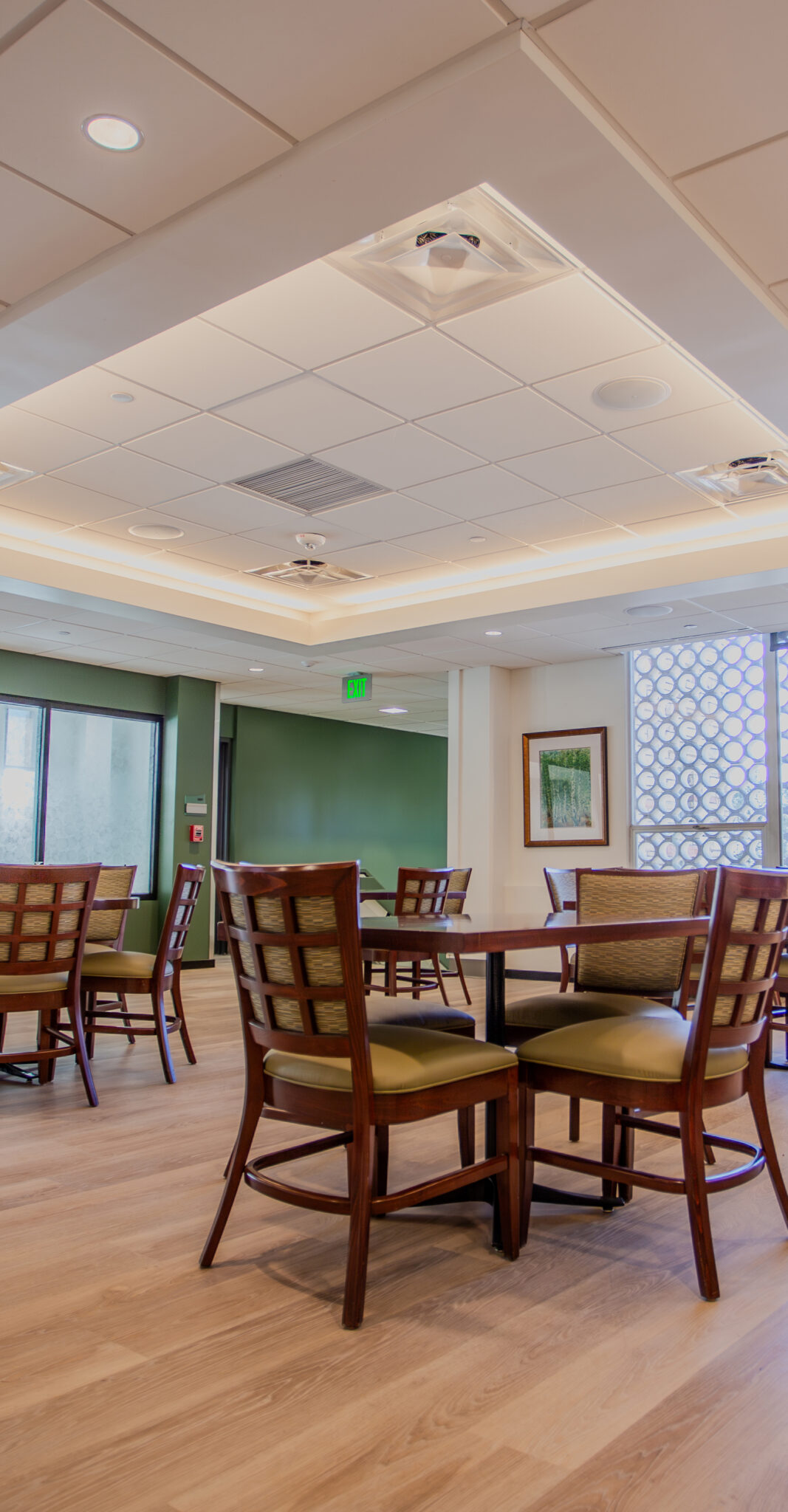
The GRA, a national nonprofit organization helping restaurants become more environmentally sustainable since 1990. The GRA has the largest database of green solutions in the world for the restaurant industry. Our sustainability steps have been measured against the GRA’s science-based certification standards in energy, water, waste, food, chemicals, reusables, and building. We have taken 45 environmental steps to earn over 210 GreenPoints™.
We decrease our waste by up to 90% every year through composting food waste and recycling plastic, glass, aluminum, cardboard, paper, and grease. By offering bulk condiments for our dine-in customers for 100% of milks and creamers and 80% of in-house condiments, we avoid wasteful single-use packets. Our walk-in coolers have been fitted with strip curtains, so each saves enough electricity to power a residential home for an entire year. 40% of our main dishes are vegan and an additional 17% are vegetarian, which require significantly less energy and water to produce than meat-based dishes.
As a result of the environmental initiatives we are taking, we are saving 51,200 kWh of electricity annually, the equivalent of 7.6 passenger vehicles off the road for one year. In addition, we are saving 84,500 gallons of water annually, enough to fill 7.7 backyard swimming pools. Our waste reduction steps also prevent 75,000 lbs. of waste from ending up in the landfill every year.

